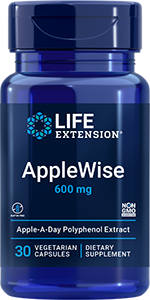Better think twice before adding that spoonful of sugar
Friday, February 7, 2014. The conclusion of a study described online on February 3, 2014 in JAMA Internal Medicine suggests that adding sugar to the diet could significantly increase the risk of dying from cardiovascular disease, the leading cause of death in the developed world.
Quanhe Yang, PhD, at the Centers for Disease Control and Prevention in Atlanta and colleagues evaluated data from participants in the National Health and Nutrition Examination Surveys (NHANES) of the US population. Added sugars were defined as those used in processed or prepared foods, including sugar-sweetened beverages, desserts, candy, packaged cereals and breads, but not those that occur naturally in fruit and vegetables.
While 71.4% of adults consumed at least 10% or more of their calories from added sugar during 2005-2010, sugar counted for at least 25% of the calories among 10% of the group. When the researchers examined the association between added sugar and the risk of cardiovascular death over a median 14.6 years of follow-up, subjects whose intake was among the top one-fifth of participants had an adjusted risk that was twice that of participants whose intake was among the lowest fifth. An intake of sugar that accounted for 25% or more of one's calories was associated with a 2.75 times greater risk of cardiovascular disease mortality in comparison with an intake of less than 10%.
Analysis of sugar sweetened beverage intake revealed a 29% greater adjusted risk of cardiovascular disease mortality among those who consumed seven or more beverages per day in comparison with those who drank less than one.
Increased sugar intake can lead to weight gain, hypertension, elevated triglycerides, and increased markers of inflammation. In an invited commentary in the same issue of the journal, Laura A. Schmidt, PhD, MSW, MPH, of the University of California, San Francisco, notes that "Overconsumption of added sugars has long been associated with an increased risk of cardiovascular disease. However, under the old paradigm, it was assumed to be a marker for unhealthy diet or obesity."
"The new paradigm views sugar overconsumption as an independent risk factor in cardiovascular disease as well as many other chronic diseases, including diabetes mellitus, liver cirrhosis, and dementia—all linked to metabolic perturbations involving dyslipidemia, hypertension, and insulin resistance," she observed. "Too much sugar does not just make us fat; it can also make us sick."
|
 |
What's Hot
An article published on December 18, 2013 online in the American Journal of Clinical Nutrition reports a protective effect for a Mediterranean diet against the risk of undergoing sudden cardiac death among postmenopausal women. The diet, characterized by a high intake of fruit, vegetables, whole grain, unsaturated fat, nuts, and fish, moderate alcohol intake, and a low intake of saturated fat, has been linked with a reduced risk of cardiovascular disease and other conditions in a number of studies.
The investigation evaluated the effects of adherence to a Mediterranean diet or the Dietary Approaches to Stop Hypertension (DASH) diet among 93,122 participants who enrolled in the Women's Health Initiative study between 1993 and 1998. Dietary questionnaires completed twice during the 10.5 year average follow-up period were scored on adherence to both diets.
Over the follow-up period, 237 sudden cardiac deaths occurred. Among those whose Mediterranean diet scores were among the top 20% of participants, there was an adjusted 33% lower risk of undergoing sudden cardiac death in comparison with women whose scores were among the lowest 20%. Higher DASH diet scores were not correlated with a lower risk of sudden cardiac death after adjustment for numerous factors, however, authors Monica L. Bertoia and her colleagues remark that the intake of salt, an important factor in the DASH diet, was not well characterized by the questionnaires.
The authors point out the association between increased consumption of fish and a lower risk of sudden cardiac death uncovered in this and other studies. "Future research should try to replicate our findings in other populations as well as investigate the association between individual components of these dietary patterns and risk of sudden cardiac death," they conclude. |
 |
Latest Products |
 |
|
The aging process and certain health issues cause a reduction in the body's production of digestive enzymes. One effect of this reduction is a bloated feeling soon after eating a large meal. Digestive enzymes are essential to the body's absorption and full use of food. The primary digestive enzymes are protease (to digest protein), amylase (to digest carbohydrate), and lipase (to digest fat). These enzymes function as biological catalysts to speed the reactions that break down food. Raw foods also provide enzymes that naturally break down food for proper absorption. The capacity of the living organism to make enzymes diminishes with age.
Supplementing with enzymes can help promote optimal digestion and better absorption of nutrients. Enhanced Super Digestive Enzymes provides a potent array of the amylase, protease and lipase enzymes that are designed to adapt to a variety of stomach acid pH conditions and provide powerful digestion of protein, fat, carbohydrates, milk lactose and vegetable cellulose. |
| |
 |
|
Recent studies by three separate laboratories have concluded that polyphenols extracted from apples extend life span in laboratory models by up to 12%.
Apples and especially their skin are rich in an array of polyphenols. One particular major bioactive polyphenol, phloridzin, found in the skin of many apple species, has been shown to act as a powerful agent against glycation and other destructive processes in the body. Phloridzin also regulates cell-to-cell signaling and supports healthy glucose levels in those already within normal range by inhibiting the glucose-6-phosphatase enzyme.
Apple polyphenols can slow triglyceride absorption from the intestine by blocking pancreatic lipase, an enzyme specifically required to break down triglyceride fats. Additional research has shown that apple polyphenols can increase the protective antioxidant molecule, paraoxonase by as much as 23%, thereby inhibiting lipid peroxidation and inflammatory factors.
|
|
 |
Related Articles
|
|











